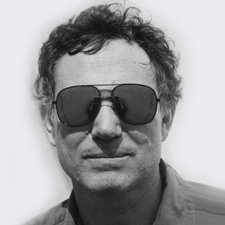Phone Therapy: Difference between revisions
From The Joe Frank Wiki
m added eliot |
m →Additional credits: link Theo |
||
| Line 47: | Line 47: | ||
== Additional credits == | == Additional credits == | ||
The original broadcast credits state: "Created in collaboration with [[David Rapkin]]. With [[Arthur Miller]], [[Grace Zabriskie]], [[Larry Block]], [[Laura Esterman]], [[Keith Talbot]], [[Helen Wilson]], <!--sp?-->Lisa Hiemer, [[Eliot Wilder]], [[Farley Ziegler]], and [[David Franks]]. Technical production by Theo Mondle. This program was produced by Joe Frank." | The original broadcast credits state: "Created in collaboration with [[David Rapkin]]. With [[Arthur Miller]], [[Grace Zabriskie]], [[Larry Block]], [[Laura Esterman]], [[Keith Talbot]], [[Helen Wilson]], <!--sp?-->Lisa Hiemer, [[Eliot Wilder]], [[Farley Ziegler]], and [[David Franks]]. Technical production by [[Theo Mondle]]. This program was produced by Joe Frank." | ||
[[Category:Absurd_Monologue]] | [[Category:Absurd_Monologue]] | ||
Revision as of 09:45, 12 August 2024
| Series | |
|---|---|
| Somewhere Out There | |
| Original Broadcast Date | |
| 1997 | |
| Cast | |
| Laura Esterman, Grace Zabriskie, Larry Block, Arthur Miller, Keith Talbot, Helen Wilson, Farley Ziegler, Eliot Wilder, Larry Kusnit, Lisa Hiemer, David Franks, Davis Black, Joe Frank | |
| Format | |
| Absurd Monologue, Improv Actors, Sound Effects, Real People, 57 minutes | |
| Preceded by: | The Policeman's Ball (Remix) |
| Followed by: | Pathology |
None of us has escaped the injuries and indignities of growing up.
Phone Therapy is a program Joe Frank produced as part of the series Somewhere Out There. It was originally broadcast in 1997. The first half-hour is When I'm Calling You; the second half-hour is Hot Line.
Synopsis
- Monologue: The problems with conventional therapy and benefits of phone therapy.
- Actors: Telephone therapy session.
- Monologue w/ sound effects: Audio Rorschach test.
- Actors: Joe as a telephone therapist in dialog with an actor.
- Monologue: fax therapy, the infinity of nothingness
- Real people: A delusional woman asks a telephone psychic and card reader if she has a future with someone she saw on an escalator. She's in a relationship with someone who calls her but has never said a word. Pain and suffering leads to youthful looks. Angels. A state trooper visits her house and touches objects to bring her pleasure. A relationship with someone who continually drives past her house.
- Real people: A gay man calls the psychic hot line with relationship trouble.
- Real people: a salesperson calls the psychic accidentally and gets into a conversation.
- Actors: Actors individual therapy session continues, without Joe's comments.
Music
- "Longing for Daydreams" - Holger Czukay (from Moving Pictures, 1993) | YouTube [Intro]
- "Around the World" - Mantovani and his Orchestra (from Around The World / The Road To Ballingarry, 1957) | YouTube [22:33]
- "Insomnie Nemurenai (Instrumental)" - United Future Organization (from Insomnie Nemurenai, 1992) | YouTube [28:27]
Additional credits
The original broadcast credits state: "Created in collaboration with David Rapkin. With Arthur Miller, Grace Zabriskie, Larry Block, Laura Esterman, Keith Talbot, Helen Wilson, Lisa Hiemer, Eliot Wilder, Farley Ziegler, and David Franks. Technical production by Theo Mondle. This program was produced by Joe Frank."
